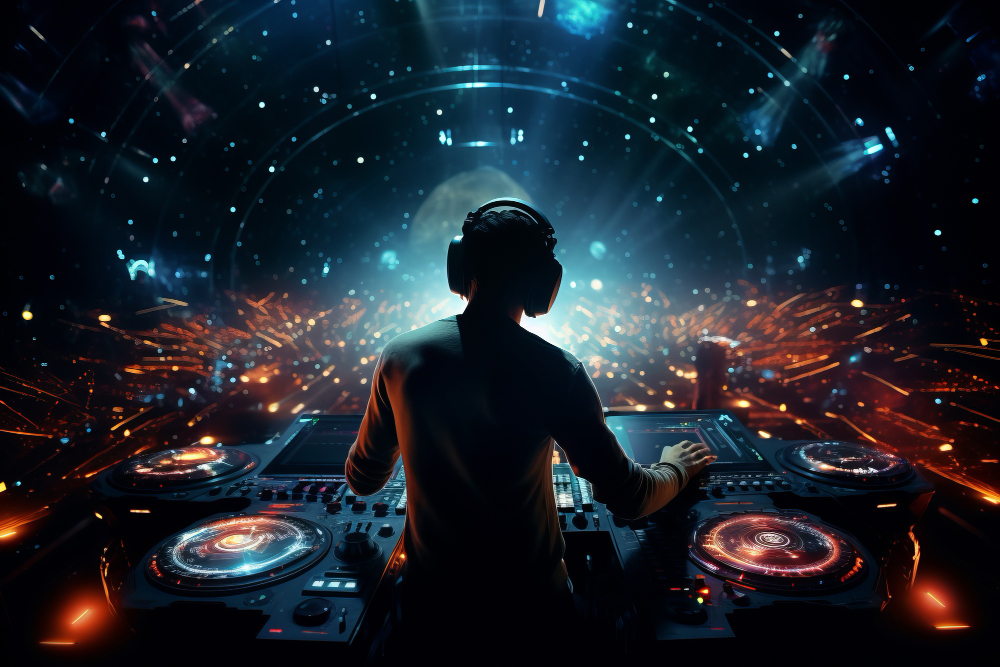Top Trends in Music Education for 2025: What’s New and Exciting?
Music is something enjoyed by people across ages; its potency transcends all geographical boundaries. This ever-evolving industry is now carved by new academic strategies and methodologies, advancements in technology, and cultural shift. Transformative changes and trends in the field of music open new horizons for interested candidates who are looking forward to taking up music as a career. Traditional music education is transforming and will be more accessible for everyone. In this article, we aim to shed light on what the new advancements are and how these trends will benefit all people aspiring for a career in music.
Read more about how music classes can help you achieve your musical goals
Below are the top trends in music education for 2025 – everything that’s new and exciting:
Technology and Music Production
The integration of technology with music has opened a lot of new doors. After the pandemic, with almost everything being available online, music classes have made their presence online in the education sector; giving aspirants a chance to connect with educators and learn from them irrespective of time and geographical constraints.
- Virtual Reality (VR) and Augmented Reality (AR):
These immersive techniques give music aspirants an interactive view of courses, experiments, etc through holographic technology. Due to its conjunct nature, students get to feel more included and learning becomes more engaging such as experiencing concerts as part of the curriculum and learning music hypotheses, theories, and/or suppositions in virtual spaces.
Read Also: India’s Highest Paying Certificate Courses for 2024: Top Job Opportunities
- Digital Audio Workstation (DAW):
Every music institute offers specialized sessions and teachings that deal with mastering the digital audio workstation. DAW is a music production software that is designed to record, edit, and mix audio files and soundtracks.
Diversity and Inclusion
Diversity and Inclusion in music is not just a ‘trend’ but also a development in the industry. Even in the educational sphere, music curricula are now inclusive of understanding, accepting, and respecting music across cultures knowing theories about the origin of genres, learning about international music (making the industry global), and even including music professionals who are underrated and people with insights into a wide array of music knowledge.
Courses from leading music institutes include learning the importance of music and its political correlation – social justice and revolution. Music has been used as a means of revolution for a lot of causes. This not only provides theoretical knowledge but also teaches students to channel music toward achieving the greater good and to advocate for social justice.
Interdisciplinary Syllabus
Music is interlinked with many other industries. The usage and presence of music are fascinating and something worth studying. Music has been effectively used and has been a part of many disciplines; environmental studies, wellness, mental health, sustainability, fitness, technology, business, and a lot more.
Students, in their curriculum, are taught to know the impact of their work on the environment, which is part of sustainability. This involves the usage of eco-friendly materials, learning the correlation between music and nature, reducing energy consumption, and adopting a more holistic approach to education.
Read Also: Creative Education in the Digital Age: Challenges and Opportunities
In the mental health sector, music has been used for therapy and healing. Musicians are even taught to use music for emotional expression and sharing thoughts/feelings. It helps manage stress and stress-induced difficulties that may otherwise hinder one from practicing music. Courses also incorporate mindfulness in their curriculum to make candidates more aware of the requirement of self-care and wellness and its importance in becoming a better musician.
Know more about how music education and music classes can keep your brain sharp.
Personalizations
Curriculums work differently for different people. It is more inclined to learn techniques that are based on people and their preferences. With the help of technology, AR, and VR solutions, the industry encourages individualized learning. Just like being able to choose electives, in the music industry’s advancements, students can opt for the following:
- Certain institutes allow students to customize their syllabus. They get to choose courses, sessions and learning based on their likings.
- Algorithms help assess progress and learning status, this helps instructors and educators to give ample amount of attention to students and help them learn better. It aids instructors to identify strengths and also teach using improvised techniques for each student or group of students. Candidates also have the option of selecting one-on-mentorship programs, ensuring that time is spent effectively with the help of an instructor who can customize learning as per the individual student’s educational needs.
Read Also: How Music Classes Can Help You Achieve Your Musical Goals
Source: Visual Capitalist | Desc: Music sales and its revenue by year from 1973-2022. This shows the scope of the music industry and the lucrative careers it offers.
Read Also: How Music & Piano Classes Keep Your Brain Sharp
Music Theory Education
Learning techniques and skills become more enhanced when you know the theory of music. When one gets to know about the history, origin, and practice of music, it makes it even more immersive and interactive to apply these theories in their own unique way.
There are softwares that offer platforms in which students can receive real-time feedback for their productions, soundtracks, notes, and renditions. These interactive apps and software make learning more interesting.
Knowing the origin of music helps students appreciate the art more. It also is about making sure that music isn’t acquired without respect for its origin and appreciating the culture it comes from. Appropriation and making music without giving due credit can be avoided with in-depth learning of history. Most curriculums teach the understanding of contemporary music theories and applied music theories.
They also teach about associating certain genres of music with a surrounding, mood or feeling. Applied theories are more than just textbook verse; one learns theory while applying those learnings in their practices.
Here is a guide to know the difference between Indian Classical Music and Western Music.
Read Also: Indian Classical Music Vs Western Music: A Comparative Guide
Conclusion
With the world changing, the educational sector also changes with it. Irrespective of industries or fields of work, it is important to adopt new-age techniques all the while accepting traditional and conventional methods. New trends and updates make learning more engaging and interesting; thereby making it more accessible for everyone interested.
Read and know more about AAFT’s School of Music, courses offered, schedules, programs, faculty, and curriculum details.











